Science New Zealand 2021 Awards
This year's annual awards celebrated 24 awardees across three award categories - Early Career Researcher, Individual / Lifetime Achievement and Team. A Supreme Award winner was chosen from the 24 awardees.
Supreme Award Winner
The AgResearch Breeding Low Methane-Emitting Sheep Team
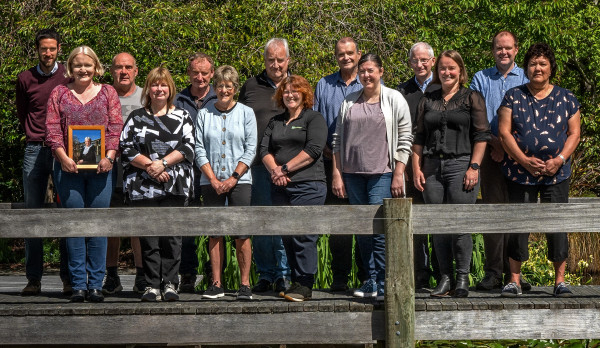
AgResearch’s Breeding Low Methane-Emitting Sheep leads the world in breeding sheep that produce less methane. This innovation gives farmers practical tools to lower methane emissions on their farms. As methane is a short-lived but potent greenhouse gas, this could contribute significantly in helping to reduce New Zealand’s greenhouse emissions.
Gains made by using this technology in sheep flocks are permanent and cumulative. The team’s work is gaining momentum with other livestock industries, particularly cattle and deer.
The principles and technology of this New Zealand-led research are being shared with many countries, thus helping to reduce agricultural greenhouse emissions worldwide. The team’s work is supported by the New Zealand Agricultural Greenhouse Gas Centre, the Pastoral Greenhouse Gas Research Consortium, and the Global Research Alliance.
In choosing a Supreme Winner from the 24 awardees, the judging panel considers:
- Excellence of the research
- Engagement with others – both within their organization and externally
- Impact of their activity.
Early Career Researchers
Criteria
- An individual who has completed their highest research qualification in the past 10 years
- has made an outstanding contribution to the values and purpose of their entity through their research and engagement with colleagues, partners, and wider community (nationally or globally).
Winners
Dr Dan Lowry - GNS Science
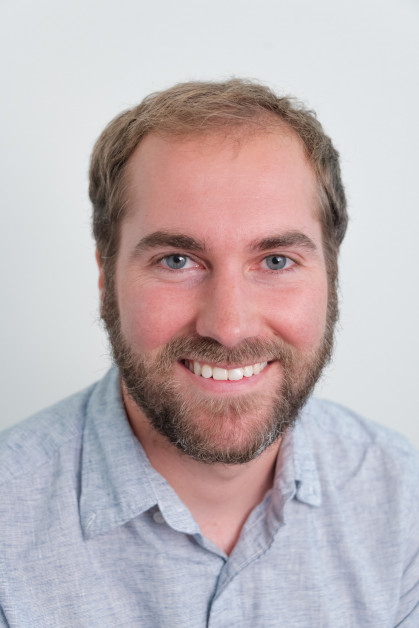
Dan Lowry is recognised as a world-class ice sheet modeler only two years after receiving his PhD. He has represented New Zealand’s ice sheet and sea level research community as a contributing author to the Intergovernmental Panel on Climate Change Assessment Report 6.
Currently Dan is investigating how heat in the ocean affects the Antarctic ice sheet and its subsequent melt rates. His research will improve sea level projections so coastal communities can better plan for and adapt to climate change.
Dr Ryan Chanyi - AgResearch
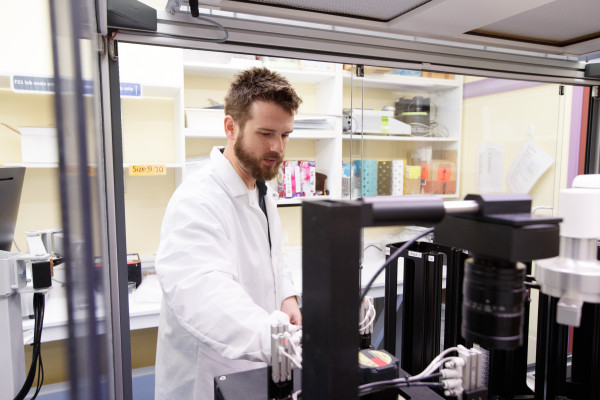
Dr Ryan Chanyi is a go-to specialist in microbial robotics, food-grade modulations, and high-throughput phenomics. His work has helped to create an entirely new research and innovation field called ‘accelerated evolution technology’. This is helping to build New Zealand’s research leadership in ‘precision fermentation’ technologies for future food systems.
His work has been crucial in convincing New Zealand regulatory bodies to approve fast-tracking commercial applications of new culture strains. The food industry has been quick to come on board.
Dr Rebecca Hawke - Callaghan Innovation
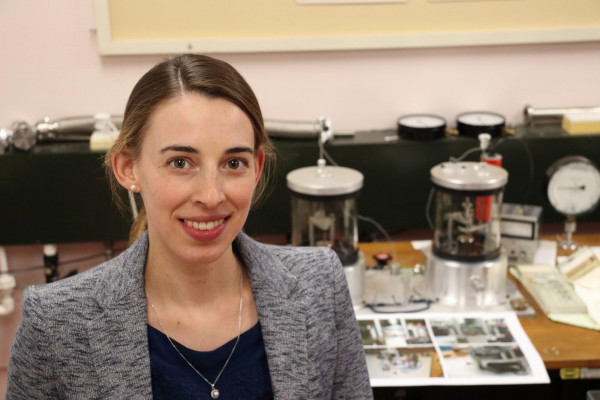
Dr Rebecca Hawke is a key member of the Callaghan Innovation team that will realise New Zealand’s very own kilogram after the definition of what makes a kilogram changed in 2019. Called the Kibble Balance Project, it combines quantum physics and precise engineering.
Rebecca has quickly established herself as a key contributor to the project. In 2019, she received the ‘Young Scientist Award’ for her research at the Asia Pacific Measurement Forum. Rebecca is a keen advocate for science outreach especially to schools, the science community, and many other groups.
Dr Odette Shaw - Plant & Food Research
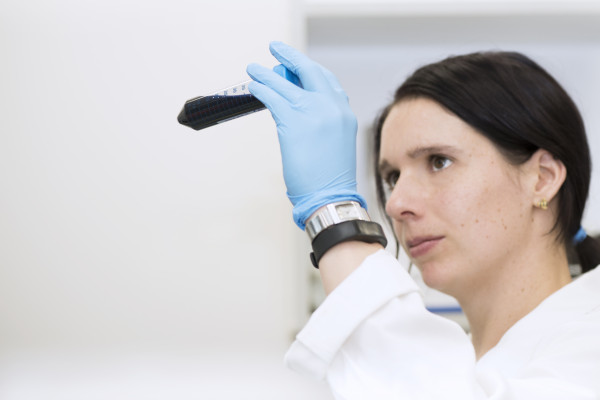
Dr Odette Shaw’s research focuses on how compounds found in fruit and vegetables can support health and wellbeing, particularly conditions related to the body’s inflammation response.
Her research into the effects of berryfruit on lung inflammation has led to the development of a new functional food product. She helps New Zealand food companies identify products that may have beneficial properties.
Dr Qiliang Fu - Scion
Dr Qiliang Fu can do wonders with wood using nanotechnologies to modify wood’s nanostructure. He is among the leaders worldwide in developing this field. His original research on transparent wood and wood film, novel designs and functionalities of wood-based materials has led to breakthroughs for many industrial applications.
Transparent and flexible wood film could replace petroleum-based plastics and reduce our reliance on non-degradable polymers in our daily life.
Dr Kenny Bell - Manaaki Whenua Landcare Research
Dr Kenny Bell is an economist with Manaaki Whenua – Landcare Research. His research is in climate econometrics, which combines relationships between weather, economic and social outcomes with climate forecasts to make projections of future damage from climate change. Kenny has contributed to analysis of the effectiveness of government policies on the COVID pandemic to prevent spread as well as the impact of those policies on businesses.
Dr Alex Geddes - NIWA
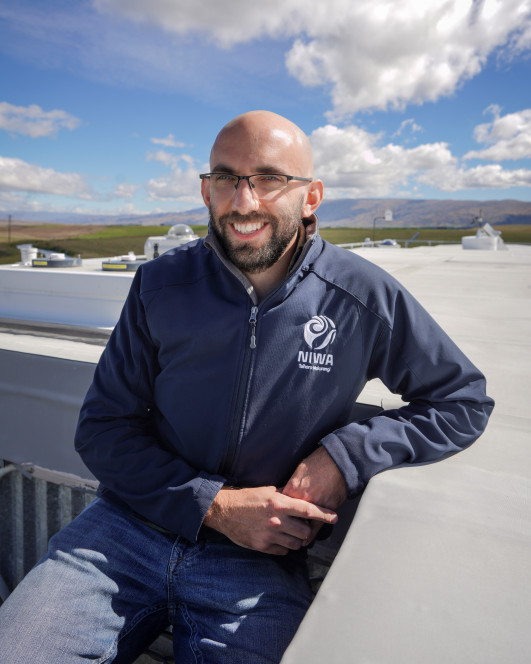
Dr Alex Geddes has helped modernise some of Aotearoa New Zealand’s most important atmospheric measurement equipment at the Lauder Research Station in the South Island. His hardware and software updates ensure the continuity and longevity of trace gas and radiation records.
Alex is key to two major research programmes – CarbonWatch NZ and MethaneSAT. His methane inverse modelling results are included in New Zealand’s Greenhouse Gas Inventory Report, which is a key source of evidence on emission trends, and is used for both international and domestic policy.
Dr Miles Benton - ESR
Dr Miles Benton is a Senior Bioinformatician with ESR’s Human Genomics Group who is an expert in new generation DNA/RNA sequencing technology. It offers rapid and powerful applications in environmental monitoring, food safety monitoring, human genome sequencing and more. Miles is an innovator who has quickly gained national and international recognition for his ability to empower science and research ‘for the people’.
As part of his current work, he works with Oxford Nanopore Technology which enables real-time analysis of long DNA and RNA fragments. He has collaborated with researchers around the world to make this powerful capability more widely affordable. This has enabled faster and more accurate clinical diagnoses and helped with improving the health and wellbeing of communities
Individual / Lifetime Achievement Awards
Criteria
- An individual who is a current or recently retired employee of a SNZ member, and
- has made an outstanding contribution to advancing New Zealand's economic, environmental, social or cultural well-being through:
- their work over time; or
- a specific discovery, development or application.
Winners
Jill Stanley - Plant & Food Research
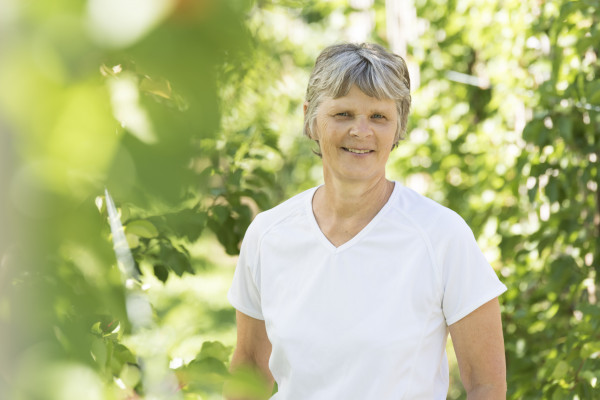
Dr Jill Stanley has more than 40 years of research experience specialising in plant physiology of fruit crops. She has made an outstanding contribution to the fruit industry and to horticultural science.
Jill’s focus is on summerfruit physiology. Her team develops ways to improve the sustainability of fruit growing, improves fruit quality and tree productivity, and evaluates new apricot selections for commercialisation.
Dr Lloyd Donaldson - Scion
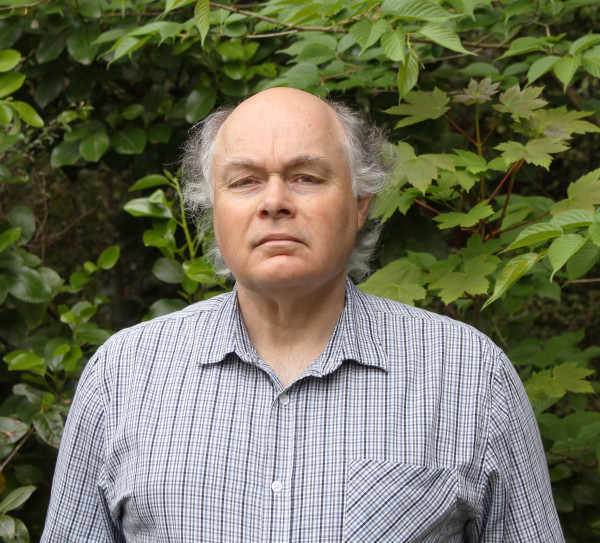
Dr Lloyd Donaldson is an internationally recognised expert in capturing images of the cell structure of plants and plant anatomy. He has pioneered techniques in fluorescence imaging of wood and biomaterials. His microscopy skills have not only provided huge insights into the structure of plants, but his methods are part of the toolbox that researchers all over the world use.
Dr Stephen Cordiner - ESR
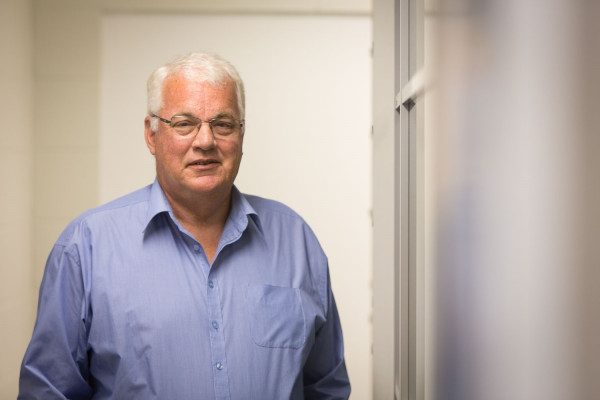
Forensic science has certainly advanced over the past few decades and Dr Stephen Cordiner has been at the forefront of many major developments. By harnessing forensic science, Steve has helped to make sure justice is underpinned by robust, impartial science that ensures fair outcomes.
In particular, he has been a leader in implementing DNA technology. His warmth, honesty and integrity are hallmarks of the way he has helped to inspire and nurture many forensic scientists during his career.
Dr Mark Poletti - Callaghan Innovation
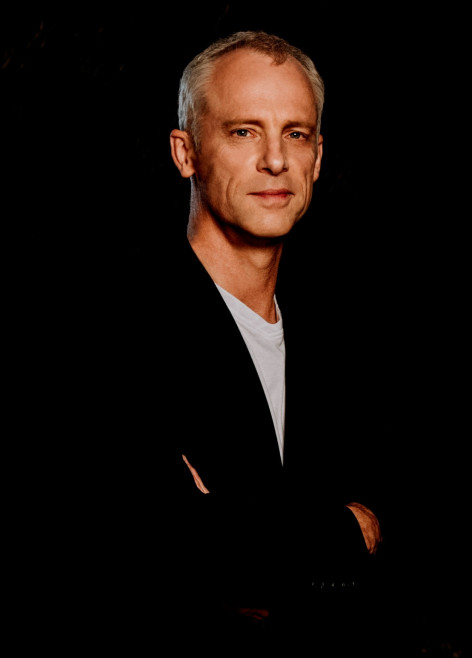
During his 37–year career, Dr Mark Poletti has demonstrated both scientific excellence and commercial relevance in the field of audio engineering and acoustics. He developed a world-class sound system which is being used in concert halls in many countries.
More recently Mark has developed a microphone array prototype for a company that specialises in recording systems for UAVs. The exceptional quality of his work has helped to advance the understanding of audio engineering and acoustics worldwide.
Dr Kenn Dodds - AgResearch
Livestock improvement has been the focus of Dr Ken Dodds and it’s an area he has left a massive legacy. A senior statistician at AgResearch, Ken has pioneered work in genetics and reproduction that has had a major positive impact on the sheep, deer, salmon, and forage industries in Aotearoa New Zealand.
He has been instrumental in the adoption and implementation of new analytical procedures that have had a significant impact on research output by others.
Dr Malcolm Clark - NIWA
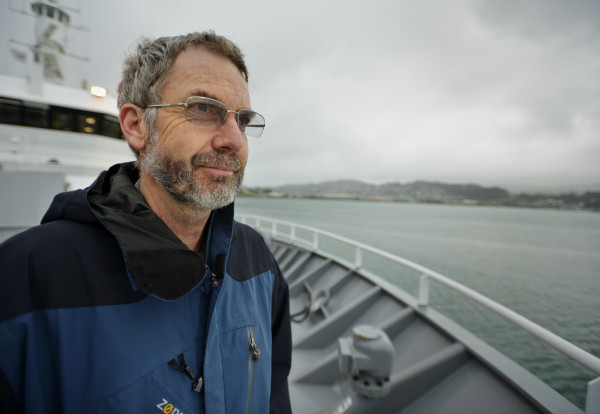
Dr Malcolm Clark is New Zealand’s leading expert in deepwater fisheries. He was instrumental in the development and management of the orange roughy fishery. He is a global authority on deepsea communities and led research on the impacts of trawling which resulted in the closure of 19 seamounts to bottom trawling and dredging.
Malcolm worked with the Convention on Biological Diversity and Global Ocean Biodiversity Initiatives to identify ecologically or biologically significant seamounts in the south Pacific, and headed the Secretariat of the Census of Marine Life programme on seamounts.
Dr David Whitehead - Manaaki Whenua Landcare Research
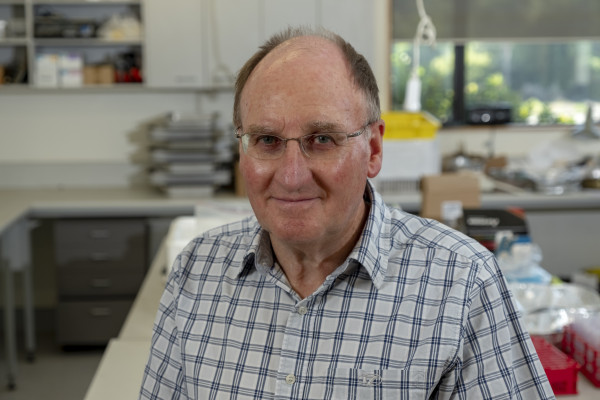
Dr David Whitehead is a lab and field scientist who has made an outstanding contribution to advancing New Zealand’s environmental and social well-being through research on plant physiology, ecosystem carbon exchange and greenhouse gas emissions, and through service to the science community.
David has worked for Manaaki Whenua and predecessor organisations since 1979, following a post-doctoral fellowship at the University of Edinburgh. He has published over 160 papers, was a contributor to the Nobel Peace Prize awarded to the Intergovernmental Panel on Climate Change in 2007.
Dr Simon Cox - GNS Science
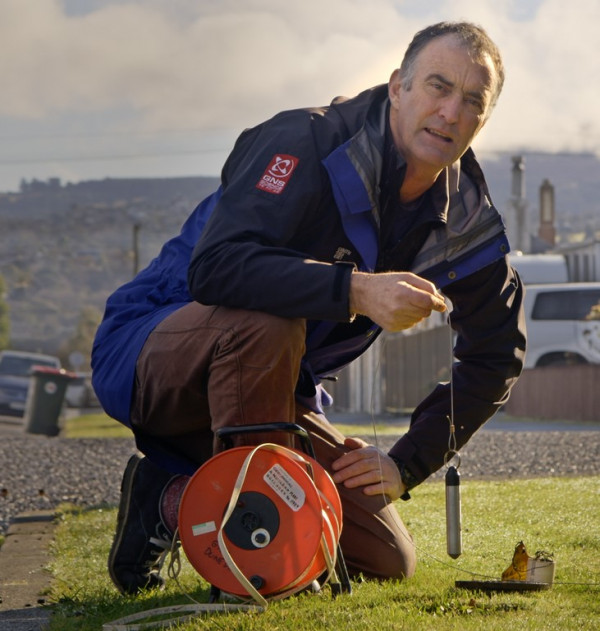
Dr Simon Cox is a doyen of South Island and Antarctic geology with expertise in geological mapping, structural geology, tectonics and fluid flow. His mapping of Antarctica and the Southern Alps has transformed our understanding of these regions’ hazards and resources.
Simon’s Alpine Fault research underpins an international reference for collisional tectonic processes, and his catalogue of every area of exposed rock in Antarctica was the first comprehensive geological synthesis of the entire Antarctic continent. He has twice been awarded the New Zealand Geophysics Prize for groundwater hazard-related work.
Team Award
Criteria
- A team refers to a group of three or more people, including at least one researcher. Not all the team members need to be from a Science New Zealand member.
- The team has made an outstanding contribution through their research, engagement and/or other activity, which has advanced New Zealand's economic, environmental, social or cultural well-being.
Winners
The AgriSea NZ / Scion Team - Scion
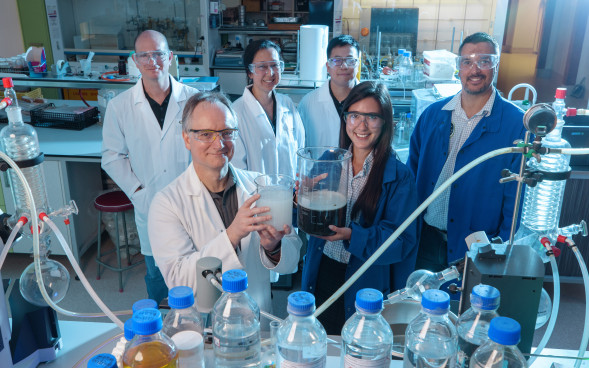
Applications include wound care, cosmetics, drug delivery, performance biocomposites and biomedical engineering. AgriSea is now upgrading its factory in Paeroa to include an industrial nanocellulose production plant. It’s a great step into the global nanocellulose market, which is forecast to be worth US$783 million by 2025.
Hikurangi Subduction Margin Team - GNS Science
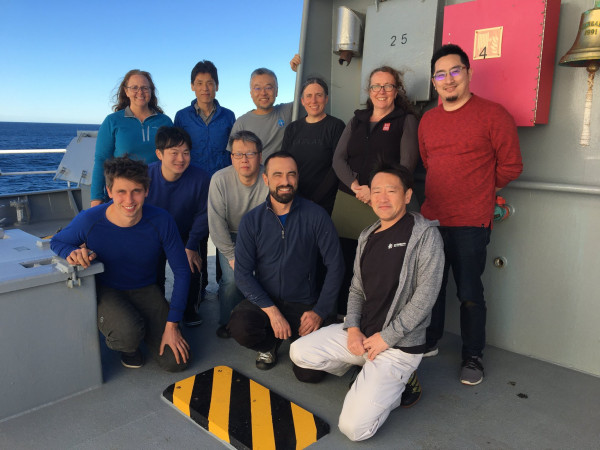
The Hikurangi Subduction Margin Team, led by GNS Science, has been the first in the world to drill into an offshore subduction fault to learn about the inner workings of a plate boundary fault.
Their research into subduction earthquake potential is enabling more reliable forecasts of the hazard and risks the subduction zone poses to New Zealand. It has informed community emergency response plans the east coast of the North Island has fed into advice to the New Zealand government on the potential impact of mega-thrust earthquakes.
Ngā Taonga - Safeguarding the Mauri of Myrtles and Dependent Ecosystems Team - Plant & Food Research
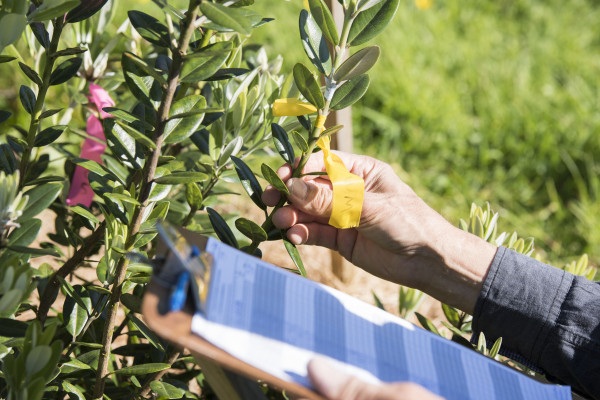
Myrtle rust was discovered in Aotearoa in 2017, threatening our myrtle species, including mānuka and pōhutakawa. This large and diverse consortium led by Plant & Food Research, called Ngā Taonga – Safeguarding the Mauri of Myrtles and Dependent Ecosystems Team, has launched an exceptional biosecurity response to protect at-risk plants from myrtle rust.
The consortium represents the largest portfolio of research on myrtle rust internationally. Key to the many successes of this group has been their cohesive and collaborative approach.
The Forecasting Team - NIWA
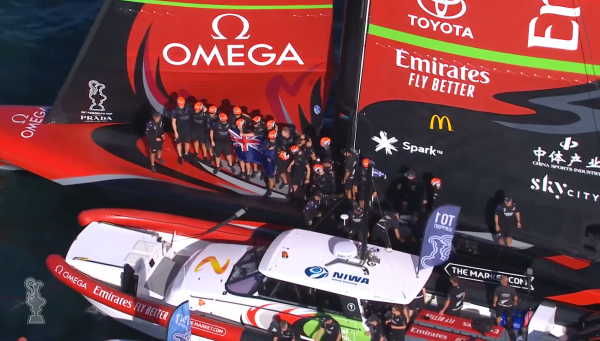
The NIWA Forecasting Team operates the world’s foremost climate and weather models for Aotearoa New Zealand. High-resolution forecasting is essential for weather-dependent operations or when natural hazards threaten. NIWA assembles the best team for any given project.
They provide a tailored, real-time, multi-hazard forecast for Fire & Emergency New Zealand, and high-resolution forecasting for the Department of Conservation to help ensure the safety of visitors to our National Parks. They also supplied Emirates Team New Zealand with ultra-high-resolution forecasting and sea-state information to help them make winning decisions.
The Communications Team - Callaghan Innovation
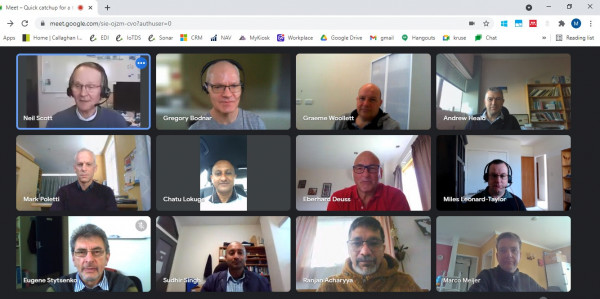
Callaghan Innovation’s Communications Team is a world leader in developing audio, acoustic and sonar technologies that make a tangible difference to people’s lives. Whether it be on-land or underwater, the work of this team of 12 specialists is opening new possibilities for customers in many countries.
One of their developments – the Constellation System – is one of the world’s top acoustic systems for concert halls and large public venues. Their expertise includes advanced signal processing capability and electronic hardware and software development.
Breeding Low Methane-Emitting Sheep Team - AgResearch

The Breeding Low Methane-Emitting Sheep Team from AgResearch, leads the world in breeding sheep that produce less methane.
Their work can apply to all ruminant livestock. This innovation gives farmers practical tools to reduce methane emissions on their farms. As methane is 80 times more potent than carbon dioxide as a greenhouse gas, this could contribute significantly in helping to reduce New Zealand’s greenhouse emissions. Gains made by using this technology in sheep flocks are permanent and cumulative.
The Weed Biocontrol Team - Manaaki Whenua Landcare Research
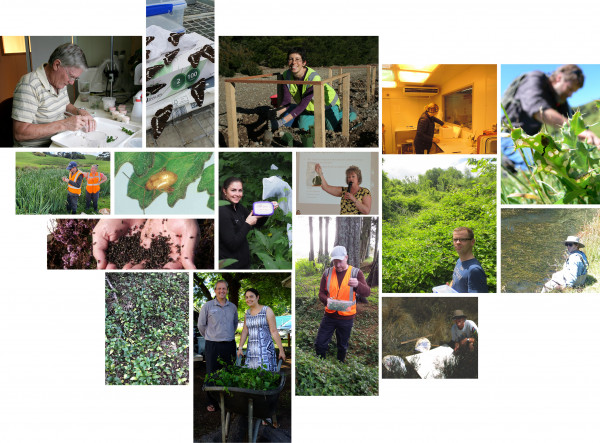
The Weed Biocontrol group at Manaaki Whenua is internationally acknowledged in weed biocontrol research and practice. Weed biocontrol is the only sustainable, cost-effective and practical way of managing widespread weeds. Biocontrol operates in a rigorous regulatory environment and takes decades of painstaking, meticulous work.
The group has developed and released biocontrol agents to control serious intractable weeds across New Zealand, from native forests in Northland to farms in Southland. The group has communicated widely and effectively, and has trained end-users to assist with releasing, monitoring, and redistributing biocontrol agents.
Enteric, Environmental and Food Virology Team - ESR
This team has been looking for viruses in wastewater for 25 years – everything from polio to norovirus. However, COVID-19 has led to unprecedented focus on New Zealand’s wastewater and required a world-leading response.
The team has worked around the clock to collect and analyse up to 850 samples a month from more than 160 locations for the presence of COVID-19. Their efforts have played a crucial role in informing New Zealand’s public health response to tackle the spread of the virus.